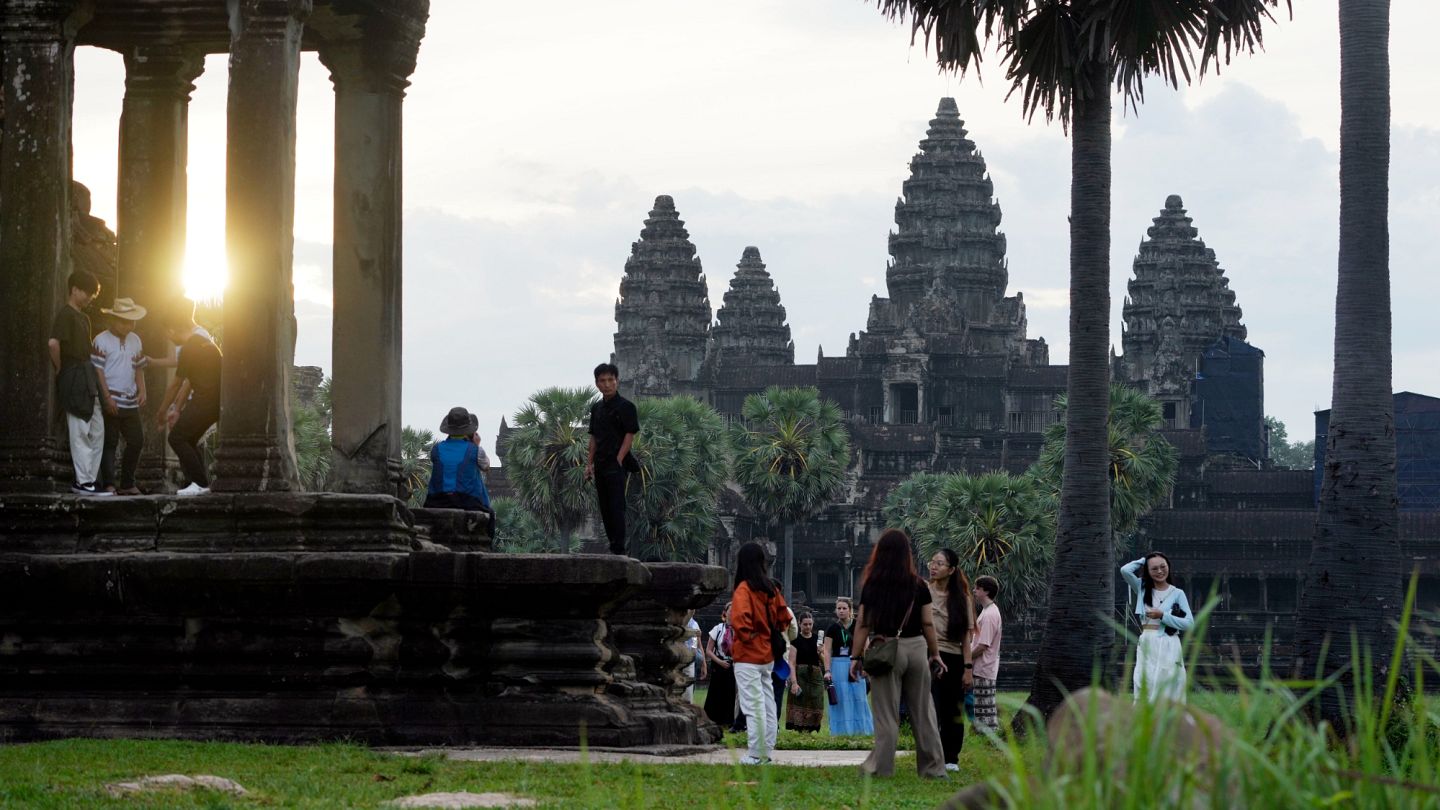Three killed in lightning strike at Cambodia's Angkor Wat UNESCO temple complex
Authorities have released no information about the strike, but an official on Monday confirmed that the three people killed were all Cambodian nationals.
Three people have been killed and several others injured after lightning struck Cambodia's famous Angkor Wat temple complex during a tour.The group had been seeking shelter around the main temple of the UNESCO on late Friday afternoon.Video posted on social media showed two ambulances arriving in the aftermath, and onlookers and site officials carrying some of the injured and helping others out on foot.Other images showed multiple people being treated in hospital.The day after the incident, Cambodia's Minister of Tourism Hout Hak issued a statement telling people to take down online posts about the incident, saying spreading "negative information" could harm the country's tourism sector.Authorities have released no information about the strike, but an official on Monday, speaking on condition of anonymity due to the sensitivity of the issue, confirmed to the Associated Press that the three people killed were all Cambodian nationals.The Cambodian Red Cross also posted an update saying it had delivered care packages to the families of two of the victims, a 34-year-old man and a 52-year-old woman.The Red Cross refused to comment further by phone.A spokesman for the Angkor Wat site did not respond to requests for comment, nor did a regional health official.Angkor Wat is Cambodia's best-known tourist attraction, attracting some 2.5 million visitors annually and is featured prominently on the country's flag.UNESCO calls the site, which sprawls across some 400 square kilometres and contains the ruins of Khmer Empire capitals from the 9th to the 15th centuries, one of the most important archaeological sites in Southeast Asia.Cambodia has been actively developing the area to attract more visitors, including opening a new $1.1 billion (€890 million) Chinese-funded airport in nearby Siem Reap.Its move to relocate some 10,000 families squatting in the Angkor Wat area to a new settlement has drawn widespread criticism from human rights groups, and UNESCO itself has also expressed concern.Cambodian authorities have said the families are being voluntarily relocated, but Amnesty International and other groups have questioned how voluntary those relocations have been.


